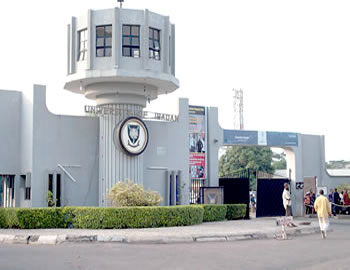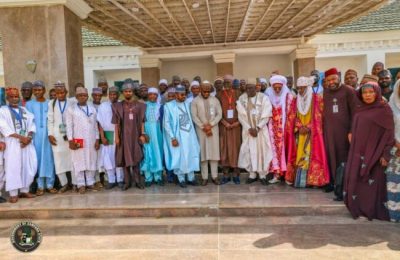
The dust raised by the recent protest by students of the University of Ibadan (UI) over hike in tuition and rationing of electricity supply hasn’t settled. TEMILADE AYODELE writes that for students from low-income households, their educational pursuit hangs in the balance due to the hike.
“I am a civil servant and my salary hasn’t increased in years. The fee hike will force me to take loans or withdraw my daughter from school. I appeal to the government to consider the plight of ordinary Nigerians and reverse the hike,” said Mr Oluwasegun Adewale, a father of a student at the University of Ibadan (UI).

Adewale’s complaints are not just peculiar to him as that has become the talk of the town among parents and guardians whose children or wards attend the University of Ibadan.
They argue that with the prevailing economic reality, leading to an increased cost of living, a hike in tuition will further drain their already stretched finances and may foretell doom and a bleak future for their children whose hopes of a tertiary education hang in the balance.
These complaints stem from the recent protest staged by students of the university on Wednesday, July 17, against the recent increased in tuition fees, which they described as “exorbitant” and the decision of the school’s management to ration electricity supply within the university community.
An internal memo, dated Tuesday, July 16, 2024, by the Director of Works and Maintenance Department, A.O Adetolu and addressed to the Chief Engineer (Electrical), announced that the Vice Chancellor approved that electricity should be rationed and made available to students for 10 hours daily.
The memo read: “Effective immediately: The Vice Chancellor has approved a 10-hour daily electricity supply on campus as follows. Day time: 8am – 2pm, night time: 10pm – 2am. Kindly adhere to the approved schedule.”
The announcement drew the ire of the students, who demanded government intervention and a reversal of the fee hike as well as optimal supply of electricity.
The president of the Student Union, Aweda Bolaji, while responding to the announcement, called for protest, saying the policies of the university management were inconsiderate. Bolaji said: “The school authority, in association with maintenance, must withdrew the memo on electricity rationing, dated July 16, 2024 and, in addition, there must be constant power within the school with effective immediately. There must be a reversal of all fees and not a reduction. Those who have paid must be refunded.”
In response, the students took to the streets as their best bet of getting their voices heard. The protesters, who carried placards and banners, decried the increase in tuition fees, which they claimed would further marginalise students from low-income families.
Iyanuoluwa, a 300 level student of Theatre Arts, while sharing her opinion with Nigerian Tribune, said: “I know of someone in my school that sold foodstuffs just to be able to pay school fees. Government should reduce the cost and create better facilities for people to learn.”
Another student of Theatre Arts department, Abiodun, who is in his last year in the department, stated: “The Student Union is asking us not to pay yet and the meeting they had with the management they said we should wait first so that the school can conclude on what to do.
“If the Federal Government is doing what they are supposed to do, the school will not be hiking the fees.”
Richard, a 400 level student of Industrial Engineering lamented: “Before the increment this session, I was supposed to pay roughly around N20,000 but due to the increment, I have to pay N140,000, which is over 200 percent increase in the school fees. With the look of things in this economy and my parents’ finances, I don’t think I will be able to afford such amount of money for tuition fee.
“I applied for the recent Federal Government student loan and I am hoping that it is approved so that I will be able to use that money for my tuition.”
Some of the parents who were present during the protest shared their concerns. Mr Peter Oluwatoberu, whose son schools at UI and with two other children aspiring to attend the institution, said the fee hike will further drill a hole in his pockets.
He said: “I have to try and look for other sources of income so that I can pay my child’s school fees which I have not paid and he still has two younger siblings, one is in his last year in secondary school and he has written his final exams and is preparing for a tertiary institution and we all know UI is the first and best; this is basically where he is coming as well.”
However, the school management, represented by the Deputy Vice-Chancellor, Administration, Professor Peter Olapegba, while addressing the concerns of the protesting students, said the university was constrained by inadequate funds as it presently pays over N8 million monthly as electricity bill.
Professor Olapegba added that the decision of the Ibadan DisCo to move the university to Band A electricity consumer category would require the school to pay N280 million monthly for electricity consumption.
He also added that the hike in tuition was in line with the current economic realities but may be addressed by the university’s Governing Council when it meets.
It will be recalled that in April this year, the university management increased tuition for freshmen by between 453 and 750 percent. The fees went up from between N64,600 and N69,600 previously to a range of N133,500 and N412,000, depending on the course.
Although, the university management refuted the news at the time, which caused disquiet among students and parents, the policy came to be.
In a country where education appears to be the key to unlocking opportunities, the students’ plight resonates with many while hopes are dwindling over a possible reversal of the hike.
Read Also: Japa: Nigeria ranks among top 10 globally — Tinubu








